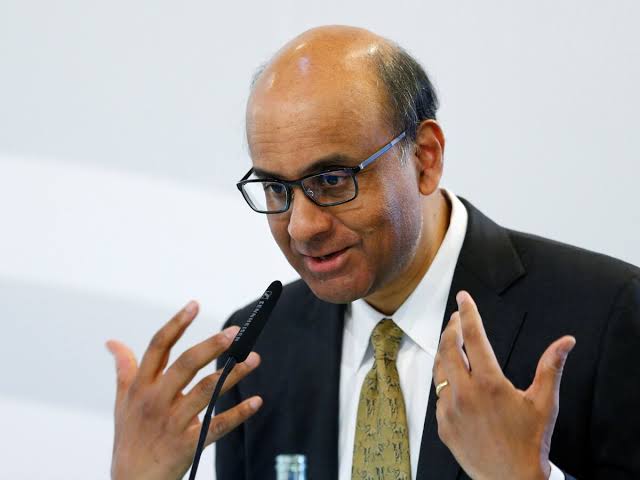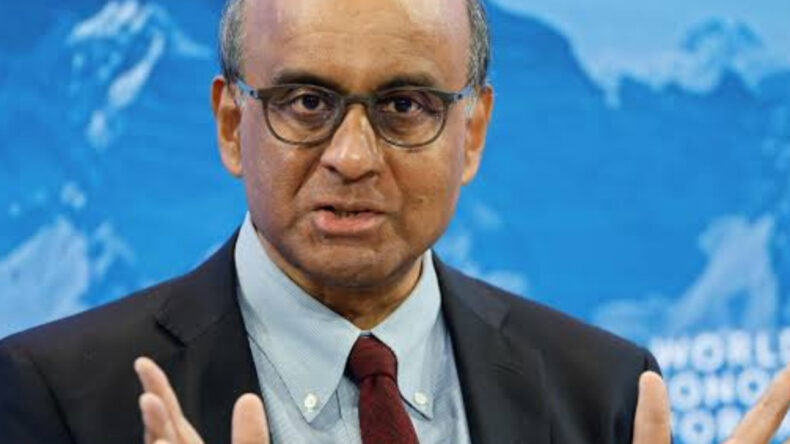
Singapore’s former Indian-origin minister, Tharman Shanmugaratnam, officially commenced his presidential campaign on Wednesday. He vowed to steer the nation’s culture towards maintaining its status as a “shining spot” in the global arena.
After announcing his intention to run for president more than a month ago, the 66-year-old Tharman stepped down from active politics after a remarkable 22-year career. In a press conference, he expressed his strong belief in the necessity to evolve Singapore’s culture, norms, and collaborative approach, ensuring the nation remains a “shining spot” worldwide.
Scheduled for September, the 2024 presidential election marks the end of President Halimah Yacob’s six-year term on September 13. During the campaign launch, Tharman, accompanied by his wife Jane Yumiko Ittogi, highlighted the challenges confronting Singapore both domestically and globally. He stressed the nation’s real challenge was to prevent divisions within society.
In his pursuit of becoming “a President for a new era,” Tharman expressed his commitment to utilising his extensive experience and capabilities, both nationally and internationally, to serve the people during this new and more challenging period.
The seasoned politician’s 22 years in politics have honed his skill in unifying people, a vital role for the president. He emphasized his genuine track record of respecting diverse views, including different political leanings, and consistently seeking common ground.
The preservation of reserves, a vital responsibility of the presidency, is an area where Tharman feels confident due to his extensive experience in government and politics over the years. He also emphasized the importance of maintaining his “more basic orientation” of integrity and independence of mind, qualities for which he has been well-known.
Before embarking on his political journey in 2001, Tharman Shanmugaratnam had an illustrious and distinguished career as an economist and civil servant, primarily at the prestigious Monetary Authority of Singapore. However, it was in the realm of politics where Tharman truly made his mark, ascending to significant positions of power and responsibility.
Notably, he served as the Minister for Education and Finance, playing a pivotal role in shaping Singapore’s educational landscape and its economic policies. His exemplary leadership and dedication led to further advancement, and from 2011 to 2019, he held the esteemed position of Deputy Prime Minister, wielding influence and contributing to the nation’s governance at the highest level.
Beyond Singapore’s borders, Tharman’s expertise and impact extended to the international stage, as he took on crucial roles in prestigious organizations like the International Monetary Fund, the World Economic Forum, and the United Nations. His involvement in these global entities allowed him to contribute to important discussions on economic policies, international cooperation, and pressing global challenges.
Tharman is among the trio of potential candidates who have openly declared their aspirations to compete in the forthcoming elections. The remaining two contenders include businessman George Goh and investment manager Ng Kok Song
According to Singapore’s Constitution, public sector presidential candidates must have held office for a minimum of three years as a minister, chief justice, attorney-general, or in other high-level positions. Private sector candidates must have served as chief executives of a company with an average of SGD 500 million in shareholders’ equity for at least three years.
The 2024 presidential election will be significant for Singapore, as it marks the first presidential election since 2011 when President Halimah Yacob was elected, making her the country’s first female president.
With a strong commitment to preserving national unity and upholding integrity, Tharman envisions a promising path for Singapore on the global stage. As the 2024 election draws near, the landscape of presidential contenders intensifies, each aspiring to serve the nation with unwavering dedication in its highest office. Excitement and anticipation fill the air as Singapore eagerly awaits the unfolding of its democratic process, poised to embrace a new era of leadership.













